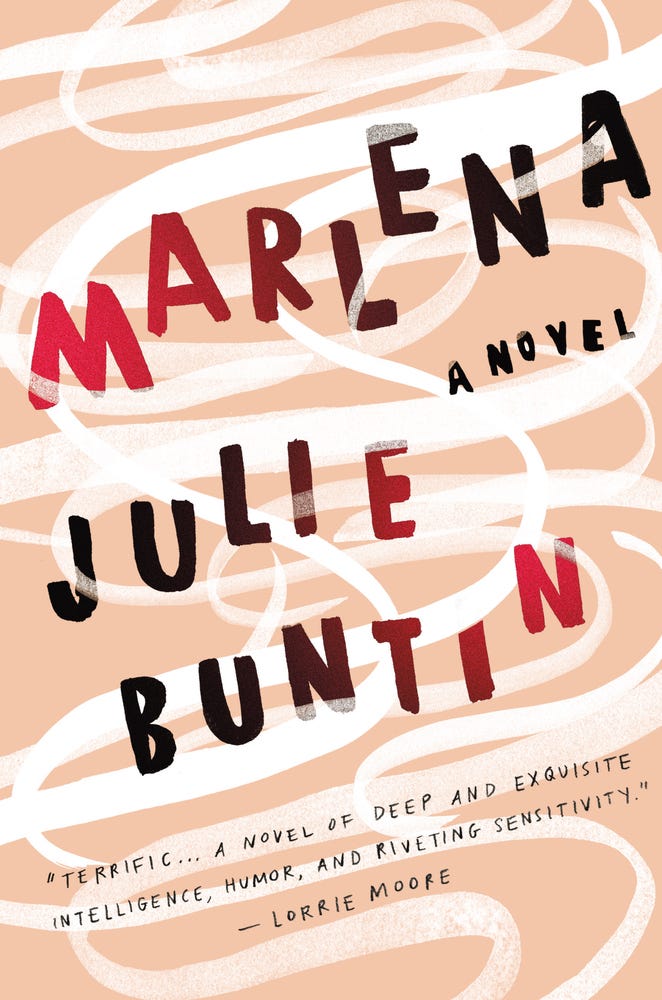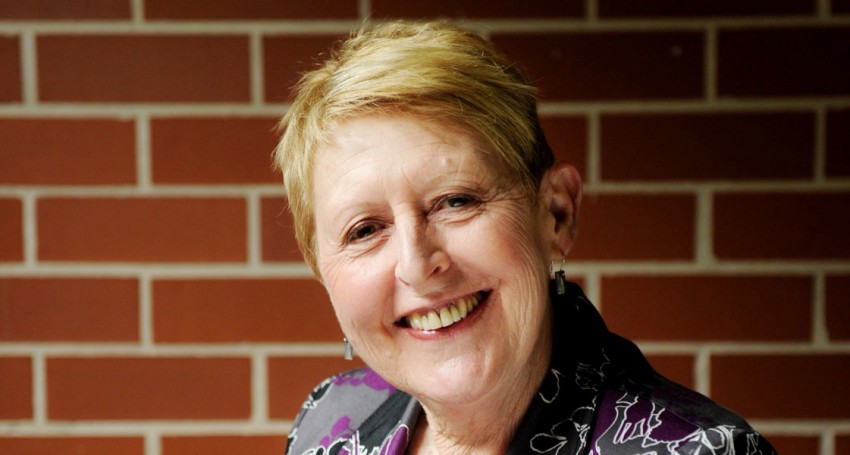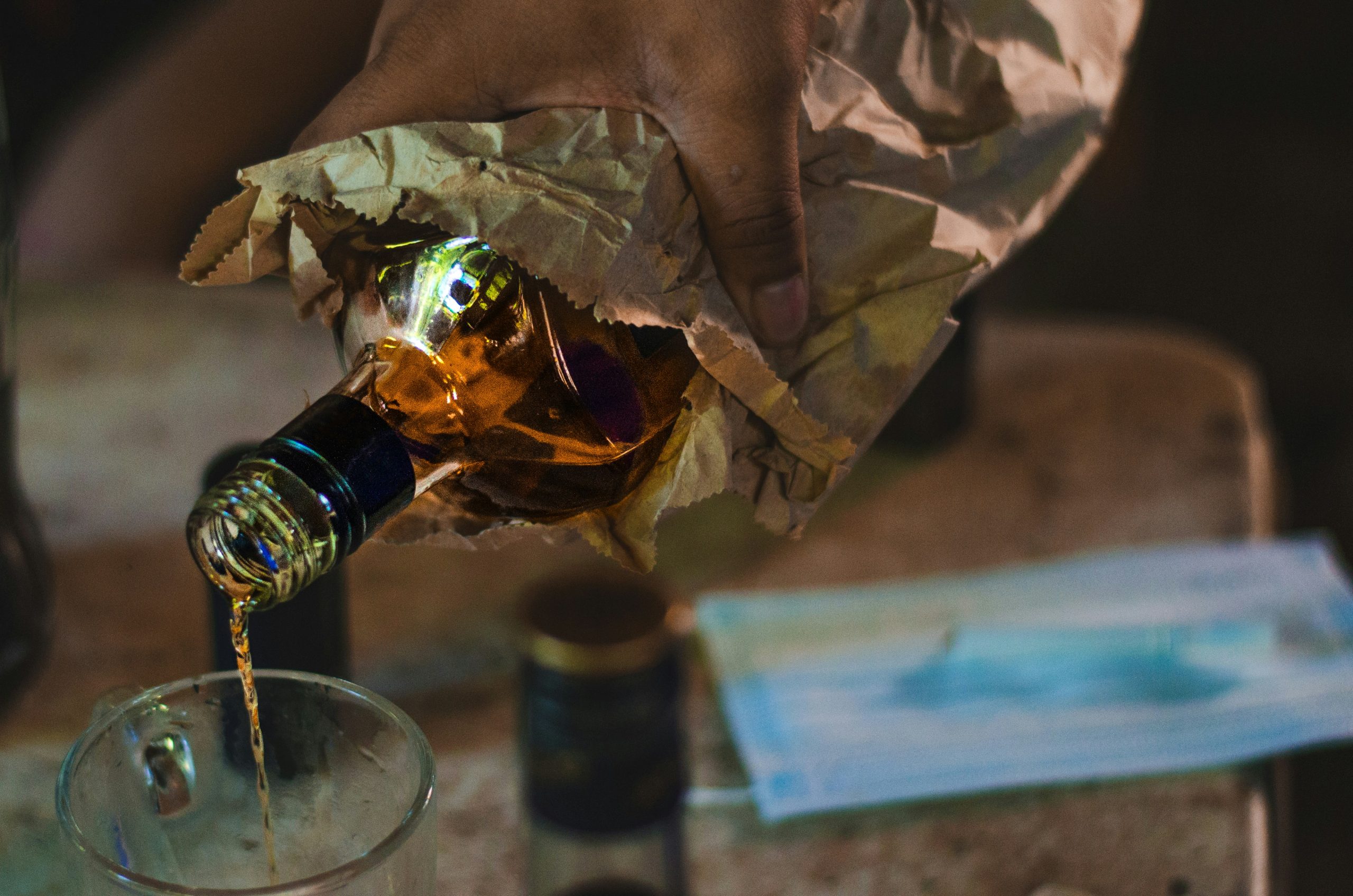Lit Mags
“The Thing Between Us” by Julie Buntin

AN INTRODUCTION BY RACHEL FERSHLEISER
To me, Julie Buntin is something like the poet laureate of the young and female and working class. The bard of knowing you come from nothing and wanting something better and struggling to believe you deserve such a thing, especially as you watch women like you, better than you, smarter or more beautiful or both, get sucked back in by drugs or despair or abusive men. Her novel Marlena, the first chapter of which is excerpted here, could be described as coming-of-age. But I’m so moved by the complications her character’s face: not dating or choosing a career, but surviving in a slice of current-day America that doesn’t seem to have much use for you. Without fetishizing technology or harping on millennial kids today, Buntin writes work that feels vividly contemporary and realistic.
It treats the inner lives of young women, even and especially poor, rural, flunking-out-of-school young women, with gravity and sensitivity.

And yet her themes of friendship and youth and loyalty and danger are completely universal. I read a sentence like, “The spring’s burst gloriously, stupidly into summer, and we’re wearing drugstore flip-flops, hair in ponytails and tacky with salt at the temples, breath all cigarettes and cherry lip gloss and wine coolers and Lay’s potato chips,” and I am there, 15 again, in an adolescence very different from Julie’s and her characters’, but feeling so intensely the things that they yearn for.
In a world that sometimes treats Boyhood like the most vital of subject matter and Girlhood like a frivolous beach read, I am so grateful for Julie’s work. It treats the inner lives of young women, even and especially poor, rural, flunking-out-of-school young women, with gravity and sensitivity. It inspires empathy and understanding for people who make “bad” choices, who don’t seem to strive as they should, or to pull themselves up by their mythical bootstraps. Like Elena Ferrante, she reminds us that writing about the aspirations of girls and the bonds between women is writing about the human condition. And she does it beautifully.
Rachel Fershleiser
“The Thing Between Us” by Julie Buntin
Julie Buntin
Share article
“The Thing Between Us”
by Julie Buntin
Tell me what you can’t forget, and I’ll tell you who you are. I switch off my apartment light and she comes with the dark. The train’s eye widens in the tunnel and there she is on the tracks, blond hair swinging. One of our old songs starts playing and I lose myself right in the middle of the cereal aisle. Sometimes, late at night, when I’m fumbling with the key outside my apartment door, my eyes meet my reflection in the hallway mirror and I see her, waiting.
Marlena and I are in Ryder’s van. That morning, while he was still asleep, she stole the keys from the pocket of his jeans. The spring’s burst gloriously, stupidly into summer, and we’re wearing drugstore flip-flops, hair tacky with salt at the temples, breath all cigarettes and cherry lip gloss and yesterday’s wine. I kick my sandals off and unfold my legs on the dash, press my toes against the windshield the way I do when it’s just Marlena and me. Ryder says I’ve ruined his car, that the spots won’t rub off, but I don’t care. Marlena painted my nails, propping my foot on her thigh. High-alert orange — her color.
Our windows are rolled all the way down. The breeze loosens the hair from my ponytail, sends it in tangles across my face so that everything I see is broken. We’re on our way to the beach, for a normal day. For holding our breath underwater until our lungs beg. For the breath-stealing slap of a wave against our stomachs and sour, fizzy mouthfuls of beer stolen from unattended coolers. We’ll track the sun’s movement with the angles of our towels and pass the same two magazines back and forth until the light sinks into the water. When we leave, unburying our feet from cold sand, we’ll have sunburns, then fevers.
We’re pretending to be girls with minor secrets, listening to Joni Mitchell with the volume turned up. Every line is a message written just for us. I sing so loud Marlena can’t hear herself, tells me shh, tells me I’m making her brain hurt. But in this memory, I only sing louder.
Marlena puts pressure on the gas and the car climbs the big hill on the dead-end road that leads to the lake. The speedometer leaps — we pass fifty-five, the limit on country roads, and hit seventy within a minute. The car fills with wind, so pushy and loud my hair whips against my neck and I can’t hear the music anymore. My voice hitches and I swing my feet to the floor. I try to roll my window up but Marlena locks it from her side. When she looks at me, grinning, I feel the car edge over to the shoulder, tires spitting gravel. She swerves back into the lane and the speedometer quivers before it jumps past eighty-five. Marlena’s ponytail has fallen almost out, and I wonder whether she can see, if maybe she doesn’t realize that we’re up to ninety now, and that underneath the wind there’s a new smell, bitter and hot, the van’s organs burning. We go faster and faster. I giggle a little and tell her to slow down, and a few seconds later to slow the fuck down, and when she doesn’t answer I shout that she’s crazy and scaring me and I want to get out of the goddamn car and that we’re going to die, please, she’s going to fucking kill us. We hit a hundred miles per hour, zipping up another hill, the car thrumming. When we reach the top the tires lift off the pavement, and when we land I slam against the glove compartment, catching myself with my forearms. She doesn’t brake and I wrestle my seatbelt on. Lake Michigan, Caribbean blue and winking light, rears up in our faces. We’re half a mile or less from the drop-off, the parking lot, the path to the beach.
She’s not going to stop, and for a second I feel something foreign, a rage that’s equal parts hunger and fear. Do it, I think, do it, and my stomach’s in my throat but I’m so tired of being the one to say no, be careful, stop. “What if I just keep going?” she shouts. Later I realize she was probably very high, because that would have been around the time of the pharmaceutical bottle of Oxy, forties, pills that loom in my memory of her like an extra feature; her eyes, the scraggly tips of her unwashed hair.
Now the lake is bigger than the sky. After we go under, how long will it take me to kick out the passenger-side window, my flip-flops floating to the roof of the car, my body shrieking for air? Marlena is a bad swimmer.
But then, no more than a dozen car lengths from the drop-off, we start to slow. The van weaves back and forth across the dotted line, careening onto the outer edges of its wheels. We stop with a shudder and a squeal. I jolt forward, the seat belt knifing into the space between my breasts. The headlights nose the slatted fence that marks the place where the land plummets a steep quarter mile to a crescent of stony beach. The car sighs, its engine ticking with relief. I am almost crying, my pulse a gallop, and I hate her for knowing it.
“Oh, come on,” Marlena says, but she’s out of breath and it takes her too long. “Do you really think I’d let anything bad happen to you?” Hives, the kind she gets when she’s anxious or excited, spread in a fine red lace from her collarbone up along the jumpy tendons of her neck, ending at her jaw. She scrapes a set of fingernails against my kneecap, a small circle that opens outward, shivering through me.
I want to spit right in her face. I want to walk away from everything she’s made me do and all the ways I’ve changed so bad that for an instant it’s possible, I almost do. I tuck my hands under my thighs so she won’t see them shaking, and stare at the pinetree deodorizer. It flutters like we’re still moving. “Cat,” she says.
It’s not a question. I love this wildness. I crave it. So why, when something in me asks if it’s worth ruining my life over, do I hear No?
I blink hard, until the tears are gone. When I laugh, shaking my head, she laughs too, and the horrible thing between us disappears, except for one indestructible sliver, mine forever. We grab the plastic bags of snacks from the backseat and trip down the path to the beach. Already I’m forgetting the feeling that seared me minutes before. Do it, just do it already, you bitch. She’s singing again, “California,” the part about kissing a sunset pig, the part about coming home. I chase her voice with mine.
Joni Mitchell songs fit Marlena. She was comfortable in higher registers, landing fast on each note, and she could perfectly mirror Joni’s trembling strength, the way she turned syllables into hard bells, ringing. That’s the last time I can remember hearing Marlena sing “California,” though it couldn’t have been. It was one of her favorites, and this was four months, at least, before she died. She drowned, technically. Though not in the way I’d feared that day, Ryder’s van, shooting through a guardrail. There was no great splash. No screams from the beach, no rushing lifeguard. She would have liked that better.
Marlena suffocated in less than six inches of ice-splintered river, in the woods on the outskirts of downtown Kewaunee, a place she had no reason to be at twilight in November. She was wearing one of my old coats and a pair of chewed-up Keds that the police would make much of. The tote bag she carried was full of loose change that must have rattled, as she walked, against that prescription bottle, her pay-as-you-go flip phone. She struck her head neatly, brutally, on a river boulder, and, it is assumed, her body slid just so, unconscious, until mouth and nostrils were submerged in water.
Some of the details are facts, but very few — where she was found, what she wore and carried. She was last seen alive at 5:12 p.m., according to Jimmy, my older brother. His memory of those three numbers blinking on the car clock is distinct. Though, he told me later, frustrated, drunk, he could be remembering what the clock read in the minutes just after she got in the car. It’s possible, he said, that 5:12 p.m. was the time he left the house, before he even picked her up. I understand why it bothered him so much, not knowing the time line for sure. Neither of us really believes that what happened to her was pure accident.
At a little past one in the afternoon, almost twenty years after that day in the car, I received a phone call from a ghost. I was walking through a corridor of faceless skyscrapers on Fifth Avenue, congested with men in long wool coats who collectively bristled when I slowed and pulled my phone from my pocket. I had a hangover, a dull knot between my eyes, a flutter in my pulse. When I saw the area code, 231, I hit Ignore. I leaned against a deli window, my chest tightening. I had no business with anyone in northern Michigan anymore; Mom lived in Ann Arbor with Roger, who even after a decade I still thought of as her new husband; Jimmy was in the UP, working for a construction company that built overpriced vacation houses.
The caller left a voicemail.
Hi, the voice said, a man, a nasal tilt to his vowels that reminded me of home. I’m sorry, he said, and then said it again. This is weird. Is this the phone for the Cat, the Catherine, from Silver Lake? This is Sal.
I saw Sal the boy, the landline’s cord corkscrewing around his fingers, speaking, as if by magic, with a grown man’s voice. It almost made me laugh. Sal Joyner. I’m in New York. He stopped for a second and then said, drawing out the words, The Big Apple, as if to prove to whoever was listening that he meant it, that it was both incredible and real. You probably don’t even remember me, he said, and then I did laugh, something like a laugh at least, a sharp intake of breath that curved up at the end, a not-unhappy sound. I hope it’s okay that I called. I’m wondering if you might have some — an hour or whatever, to meet. To talk to me about my sister.
And it all came back, of course, the edges sharper, clearer, than the city around me, the city that had seemed to blur and then fall away as soon as Sal said his name. Though it was there already, wasn’t it? A period of my life so brief it was over almost as soon as it started, and still there’s something I want to know, a question ticking in the deep, a live mine.
231. For a second I had thought it was her.






